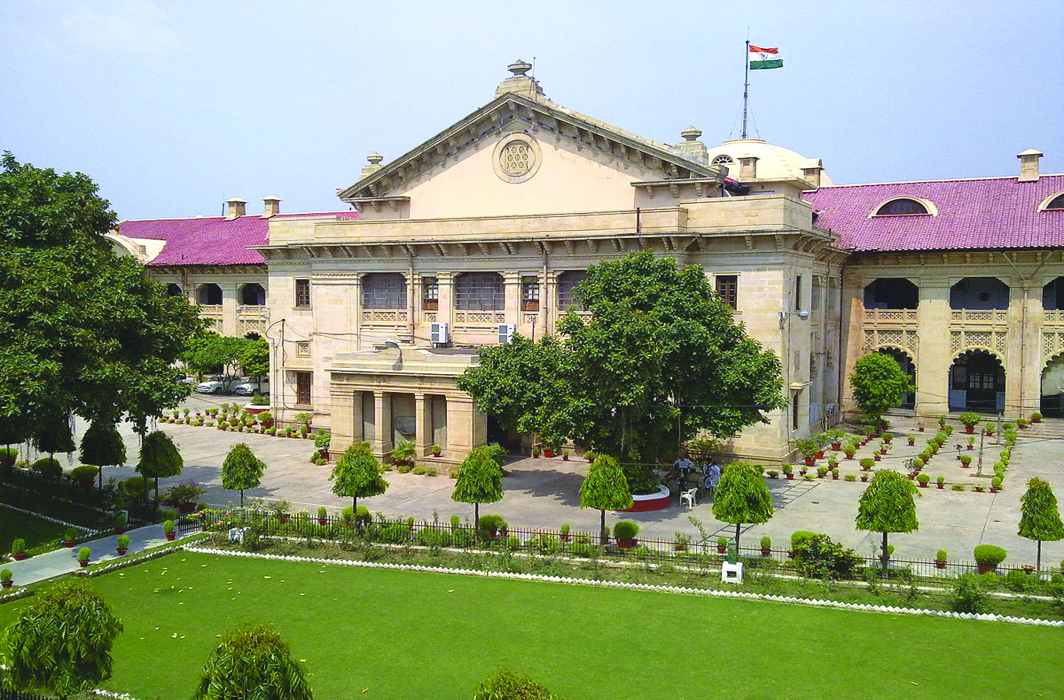The Allahabad High Court has recently held that the testimony of a witness should be accepted by the Court after careful scrutiny of materials placed on record.
The division bench of Justices Manoj Misra and Saumitra Dayal Singh passed this order while hearing a criminal appeal filed by Rampal Singh and others. The appellants, Rampal Singh, Udaibhan and Chandrabhan, filed the appeal against the common judgment and order dated October 5, 2005 passed by Arvind Kumar Singh, Additional District and Sessions Judge/Fast Track Court Mainpuri.
The appellants were convicted for offences under Sections 147, 148, 307/149 and 302/149 IPC. Upon conviction, for the offence under Section 147 IPC each of the appellants was sentenced to six months’ imprisonment.
Upon conviction for the offence under Section 148 IPC, each of the appellants was sentenced to one year’s imprisonment.
The Counsel for the appellants submitted that the entire prosecution story is an afterthought. In this regard, reference has also been made to the cross-examination of constable clerk Shiv Nath, who admitted that the FIR was first received by the Magistrate on July 16, 2001.
The FIR is clearly ante timed is also borne out from the plain reading of the inquest Panchanama with respect to the dead bodies of Harvendra Singh @ Tika and Devendra Singh, wherein the time of the FIR being lodged has been clearly overwritten only to give sanctity to the otherwise ante timed FIR. Up to that time, no FIR existed. Further, the ‘Chitthi Majrubi’ also does not bear the FIR number. Second, it has been submitted that the injuries claimed by the injured witnesses were wholly false and unsubstantiated.
Opposing the appeal, AGA has submitted that there is no delay in lodging the FIR and that there is no reasonable doubt of the same being ante-timed. It was promptly lodged. A simple cutting/overwriting on the inquest report as to the time of the FIR being lodged cannot and it does not create a reasonable doubt as to the date or time when the FIR was lodged. All other details of the FIR were duly and correctly recorded on the ‘Panchanama’.
The injuries of the two injured witnesses are stated to be wholly genuine and duly proved. In an incident of this kind, where many rounds of ammunition were fired and two murders had been caused, merely because one close shot injury suffered by the deceased Devendra was not explained during ocular evidence, it could not lead to falsification of the entire prosecution evidence.
In this context, the Bench referred to a decision of the Apex Court in Jalpat Rai v. State of Haryana, 2011 (14) SCC 208, where it was held,
“All that is necessary is that the evidence of interested witnesses should be subjected to careful scrutiny and accepted with caution. If on such scrutiny, the interested testimony is found to be intrinsically reliable or inherently probable, it may, by itself, be sufficient, in the circumstances of the particular case, to base a conviction thereon.”
The Apex Court held that no hard and fast rule can be laid down in the matter of appreciation of evidence. However, in evaluating the evidence of an interested or even a partisan witness, it is useful as a first step to focus attention on the question whether the presence of the witness at the scene of the crime at the material time was probable.
“If the answer to these questions be in the affirmative, and the evidence of the witness appears to the court to be almost flawless, and free from suspicion, it may accept it, without seeking corroboration from any other source,” the Court observed.
In this case, the Complainant had alleged that the Appellant along with other co-accused had opened fire at his family members on account of old village rivalry arising from successive elections to the post of village Pradhan.
In appeal, the High Court expressed doubt as to the allegation of the indiscriminate firing made by the Complainant. It wondered how, if the accused persons opened fire, the Complainant who himself was at the crime scene, did not get injured, the Court said.
“According to the testimony of Sureshpal Singh, the victims had been completely overpowered by the appellants and remained at the Crime Scene for about 10-12 minutes during which period they fired about 16-18 rounds of ammunition after reloading their weapons. If the firing was so 24 indiscriminate and purposeful to eliminate as many members of the rival party/family, it stands out that not a bullet was fired at the first informant Sureshpal Singh who was positioned under the “Chhappar” at a similar distance as the two deceased victims-Devendra Singh and Harvendra Singh @ Tika”, the order reads.
The High Court dismissed the appeal on the ground that the testimony of other witnesses stood established and the substratum of the prosecution story is consistent and corroborated in all material parts.
Read Also: America: Stimulus and Politics


